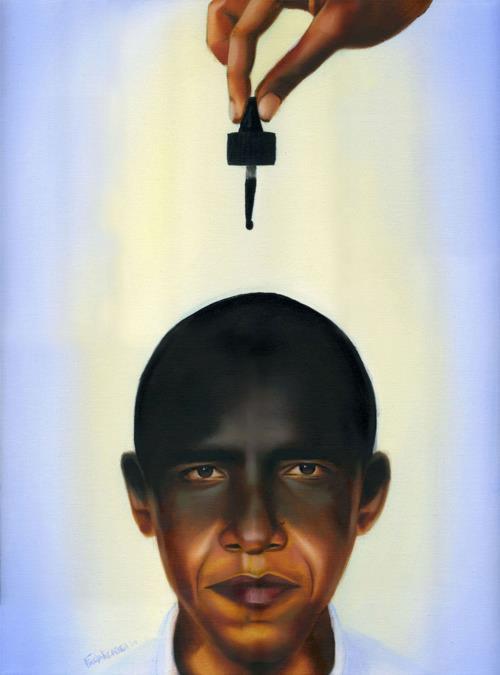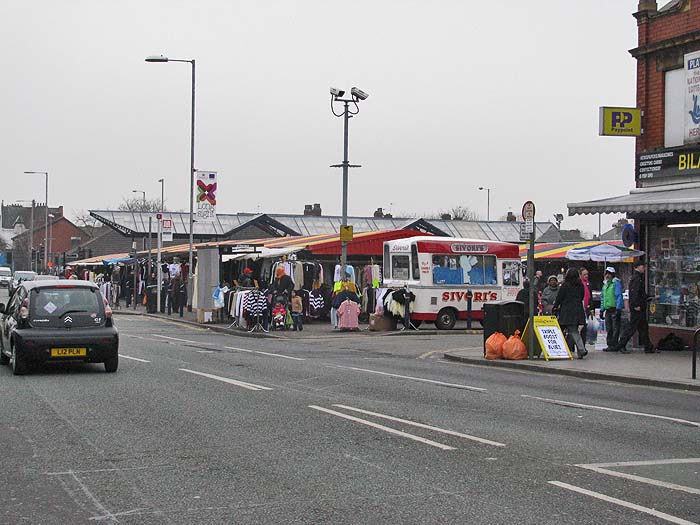My process for coming into my mixed race identity was slow because though I was socially ostracized from many Black peers by my junior year in college for outing myself as a "feminist", I was still embraced by other Black people who didn't feel threatened by my public declaration. Likewise, in my neighborhood which was predominantly Black but had a good number of Filipinos who settled in the area post World War II, people knew we were a mixed family. I don't recall there ever being a situation where people treated me like anyone but a full member of that community. I think why I experienced this ease was due to the fact that I was raised to be Black with Filipino traditions passed on by my Filipina great-gram. My great-gram placed more emphasis on us keeping her cultural traditions alive rather than insisting we call ourselves Filipino because she was acutely aware of how her mixed race children, grands, and great-grams were judged as Black. So, I didn't go around saying I was "part this, or part that" which might have led to harassment or ostracism from the Black community. I just said I was Black in public and in private, I could be both or neither if I wanted.
It wasn't until I had taken a comparative Asian American history course in my first year of my MA program doing research for my project on Filipino Americans' differing practices of Catholicism based on region that I found myself wanting to learn more about the culture I practiced through ritual handed down to me by my great-gram. I started purchasing Filipino cultural artifacts, books, and religious items from Filipino-owned shops. I began reading, attending Filipino cultural events, attended mass more frequently, even hired a tutor to learn Tagalog (ran out of money before I could really learn much) and a host of other things so I could take it all in. This period of "cultural immersion" lasted at least five years until I went to Ohio to work on my Ph.D. But I never stopped being Black....I simply wanted to embrace all aspects of my identity that I could.
When I went to Ohio to work on my Ph.D., I found easy acceptance in the Black graduate student community whereas the Asian presence was limited to mostly foreign-born Asians who viewed me with a great deal of skepticism. So I was active in the Black Grad Student Association and socialized mostly with Black friends and the mixed group of friends from my Ph.D. cohort. Most people in grad school didn't realize I was also Asian until a situation occurred where the College of Education had created a Ph.D. mentoring program for underrepresented racial minorities and some Black students got upset that Asian Americans were being considered "underrepresented" and included in the program. A Black classmate of mine asked angrily "Why do they need mentoring? They are the model minority, right?" I promptly explained the problem with her logic while informing her that I was a mixed Asian and Black person to which she replied "I don't see you as mixed race." Sigh. I can't win for losing, I thought, reflecting on my undergraduate experience where I was told I wasn't Black enough. Now, I'm too Black to be considered mixed race. Gah!!!!
From that incident for the remainder of my time in Ohio, I had to grapple with folks trying to guess my racial identity that I never really encountered in California. It made me really uneasy because this fascination came predictably with me having to field 1,001 questions that prolong the conversation as people tried to wrap their heads around my answers:
"So what is your mom? She's the Filipino one, right? Wait, you mean that you're only 1/8 Filipino? How can that be if you are so light? Do you consider yourself Black, White or Filipino? Why do you act so Black? How can you consider yourself black if you are mixed?"
Fast forward about 3-4 years when I met my now-husband, a Black Brit from Manchester, England, in Ohio of all places. On the flight to England to meet his family for the first time, I was asked by a random white Englishman the "what are you?" question. This particular fellow assumed I was bi-racial Black and White and the conversation went something like this:
Him: "So which one of your parents is white?".
Me: "Neither"
Him: "Really? Aren't you mixed race?"
Me: "Yes
but both of my parents are black. "
Him: "How can you be mixed race with two
black parents?"
Me: "If you live in a country which relies on old ideas of
racial purity (one drop) and you were raised in Black neighborhoods, it is indeed
possible to be mixed race with two black parents."
Him: "Why is everything so
complicated in America?"
Me: "Good question."
Him: "So what are you?"
Me: A multiracial Black woman.
The man appeared flustered by my embrace of what I now see as a cultural-political identity as opposed to solely a racialized one. I am multiracial and Black. I see myself as culturally Black and Filipino and racially Black, Filipino and White but more important for me is to both one-drop and "multi-drop" simultaneously. I do this as a reminder to others of white Americans' insistence in relying on the "one-drop" rule to determine race status while feeling a sense of solidarity culturally and politically with the Black community. I "multi-drop" because my Filipino identity informs who I am as well although maybe to a lesser extent than my Black identity because I came to fully accept myself as Filipino later in life and I multi-drop because although my White ancestry doesn't inform my cultural or political identity that ancestry is written on my body through my skin color, hair color, freckles, etc.
It was during that exchange on that flight to England that I had finally felt a sense of "identity achievement" because I found a way to describe who I was on my own terms. My identity as a multiracial Black woman is intentionally complicated and contradictory because I want others to see the utter insanity of forcing people into racialized boxes for convenience but also to tell others that I do see myself as part of the Black community and that my mixed identity doesn't take away from me feeling both/and instead of either/or. I find calling myself mixed or multiracial to be insufficient because it doesn't connect me to a specific community but also feel uncomfortable in not acknowledging and embracing the culture of the women who raised me. So I embrace my contradictory racialized self even if others can't or won't.




